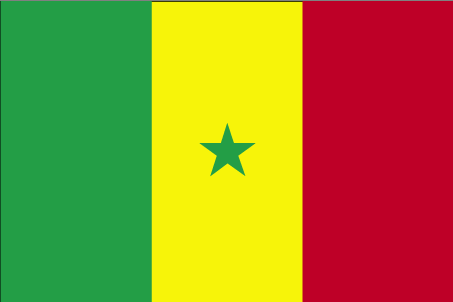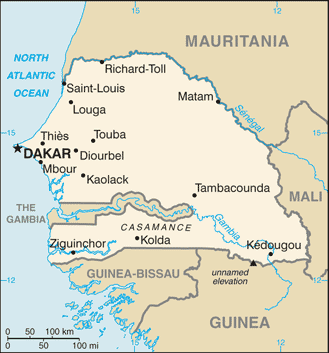Investing in Senegal


Senegal relies heavily on donor assistance. The country's key export industries are phosphate mining, fertilizer production, and commercial fishing. The country is also working on iron ore and oil exploration projects. In January 1994, Senegal undertook a bold and ambitious economic reform program with the support of the international donor community. Government price controls and subsidies have been steadily dismantled. After seeing its economy contract by 2.1% in 1993, Senegal made an important turnaround, thanks to the reform program, with real growth in GDP averaging over 5% annually during 1995-2007. Annual inflation had been pushed down to the single digits. The country was adversely affected by the global economic downturn in 2009 and GDP growth fell below 2%. As a member of the West African Economic and Monetary Union (WAEMU), Senegal is working toward greater regional integration with a unified external tariff and a more stable monetary policy. High unemployment, however, continues to prompt illegal migrants to flee Senegal in search of better job opportunities in Europe. Under the IMF's Highly Indebted Poor Countries (HIPC) debt relief program, Senegal benefited from eradication of two-thirds of its bilateral, multilateral, and private-sector debt. In 2007, Senegal and the IMF agreed to a new, non-disbursing, Policy Support Initiative program which was completed in 2010. Senegal received its first disbursement from the $540 million Millennium Challenge Account compact it signed in September 2009 for infrastructure and agriculture development. In 2010, the Senegalese people protested against frequent power cuts. The government pledged to expand capacity by 2012 and to promote renewable energy but until Senegal has more capacity, more protests are likely and economic activity will be hindered. During the year, bakers protested government price controls on bread. Foreign investment in Senegal is constrained by Senegal's business environment, which has slipped in recent years, and by perceptions of corruption.
TOTAL Senegal - http://www.total-senegal.com/
Senegal News
Agence de Presse Sénégalaise (Dakar) - http://www.aps.sn/
Le Soleil (Dakar) - http://www.lesoleil.sn/
Sud Quotidien (Dakar) - http://www.sudonline.sn/
Wal Fadjri (Dakar) - http://www.walf.sn/
Countries that border Senegal: Mauritania | Mali | Guinea | Guinea-Bissau | The Gambia
Learn more:
Back to Country Investing



